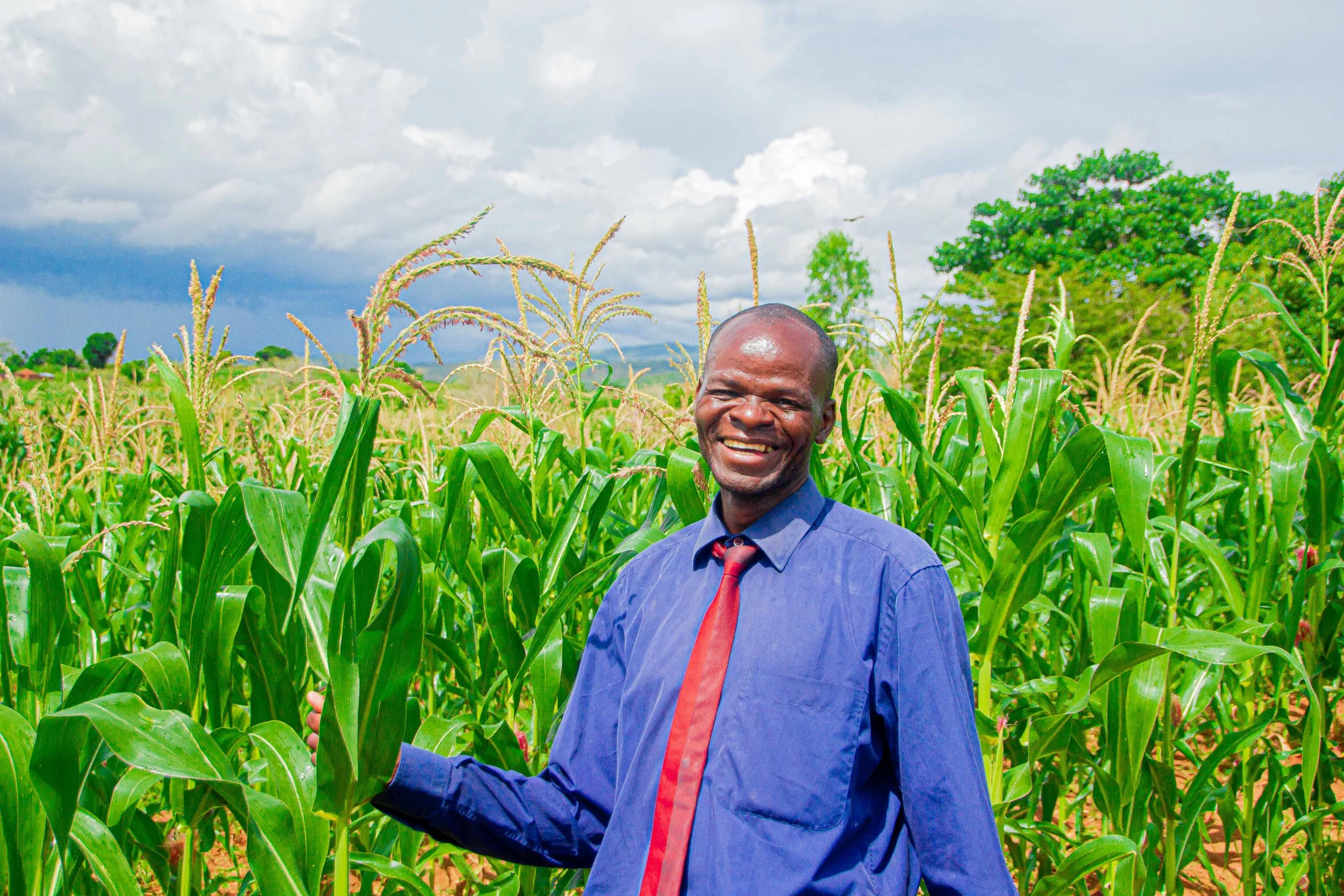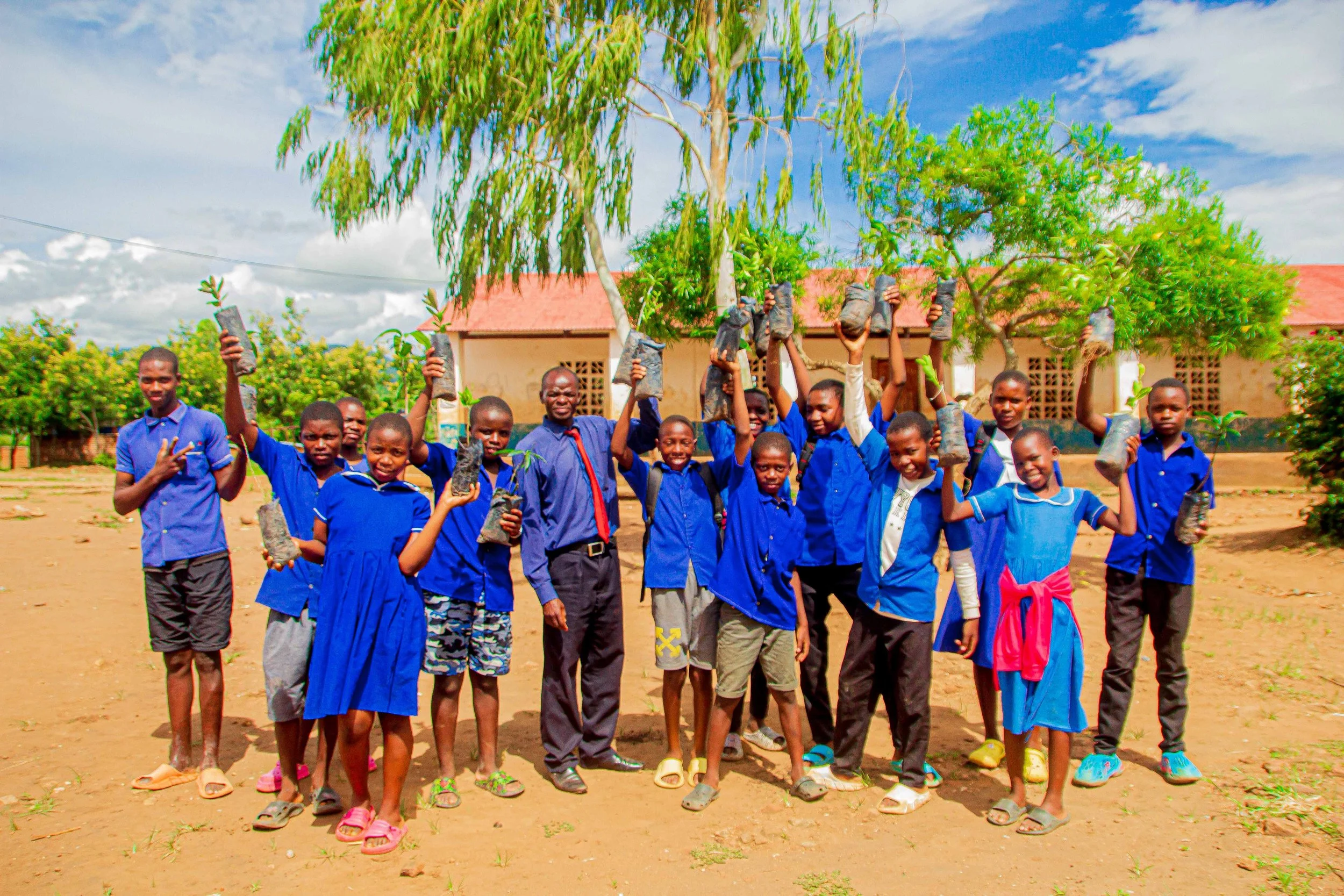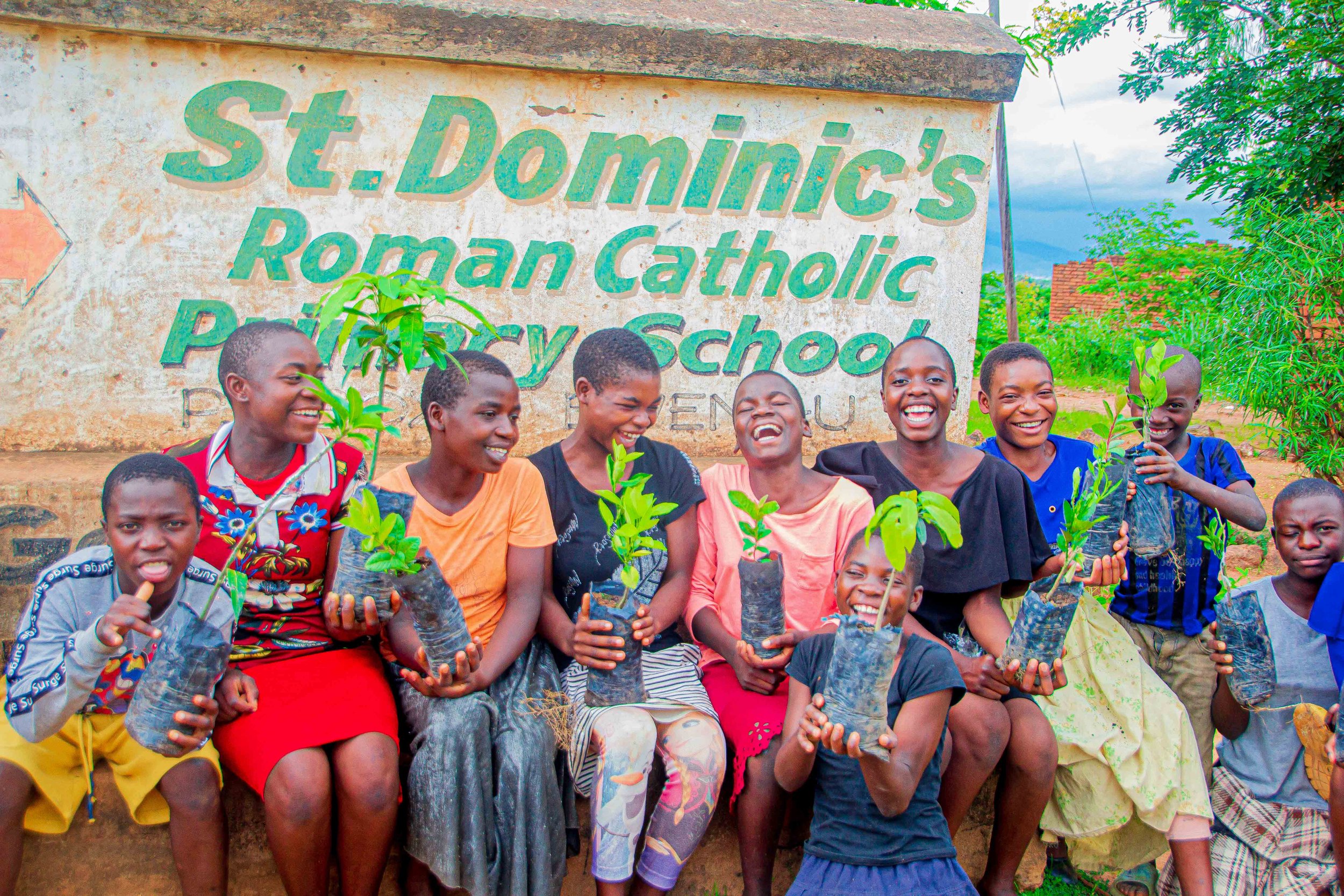Luzi PRIMARY SCHOOL Applauds School Meals Programme for Its Unique Approach to Sustainability
Fletcher Hara, Headteacher for Luzi FP School shows off School’s Farm for the Meals Program
In the pursuit of providing nutritious meals for students, School Meals Program has taken a distinctive approach that has earned the praise of Headteacher Fletcher Hara at Luzi Primary School.
The unique strategy involves empowering schools through the provision of essential farm inputs, fostering sustainability and resilience in the school meals program.
School Meals Program has taken a proactive step by providing farm inputs to 16 schools, including Luzi Primary School. These inputs consist of essential elements such as fertilizer, maize seeds, and soya seeds.
Ulalo is partnering with Chancen durch Bildung (CDB)- Germany to implement this initiative that aims not only to address immediate food needs but also to empower schools to become self-sufficient in the long run.
Expressing his satisfaction with the unique approach, Headteacher Fletcher Hara of Luzi Primary School acknowledges the significance of providing schools with the necessary tools for sustainability.
“The approach is a game-changer for us. By providing the necessary farm inputs, they are not just giving us meals; they are giving us the tools to cultivate our sustenance. This is a crucial step towards long-term sustainability.” Said Hara.
In addition to providing farm inputs, the School Meals Program has extended its commitment to sustainability by supporting each of the 16 schools with 65 trees. This initiative, complemented by 25 fruit seedlings and 40 agroforestry plants for each school, demonstrates a holistic approach to environmental conservation and food security.
Luzi Full Primary School shows off the tree seedlings
The School Meals Program's multipronged approach addresses both short-term and long-term goals. By providing immediate support through farm inputs, the program meets the immediate nutritional needs of students. Simultaneously, the emphasis on tree planting and agroforestry ensures a sustainable supply of resources, creating a self-reliant model that goes beyond merely providing meals.
“The program's holistic approach means our students not only receive nutritious meals today but are actively involved in building a sustainable tomorrow. It's a model that sets a benchmark for others to follow.” Said Hara.
All smiles as St Dominic receive tree seedlings
As schools become active contributors to their own food production, the impact resonates not only within the educational institutions but also in the surrounding communities, fostering a culture of resilience and self-sufficiency.



